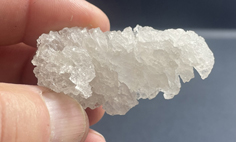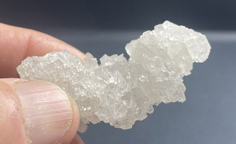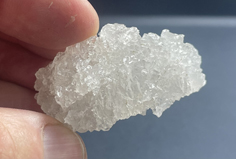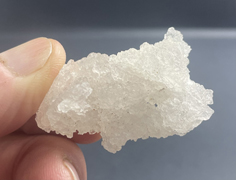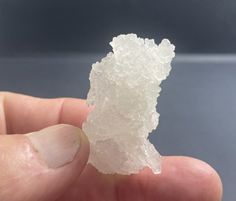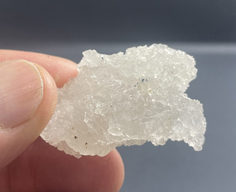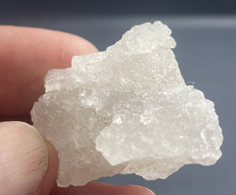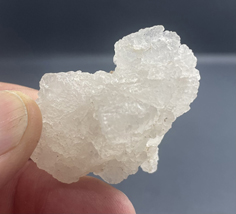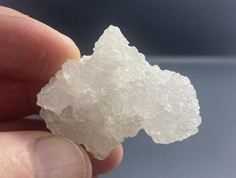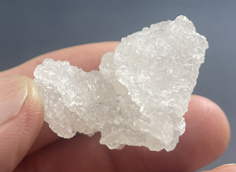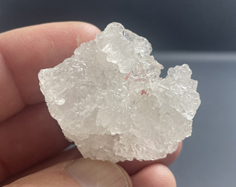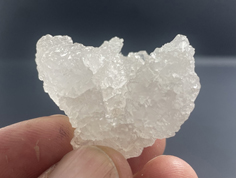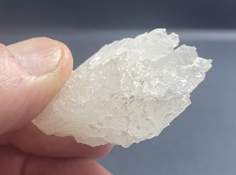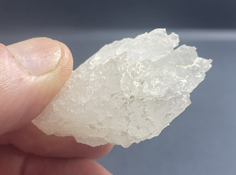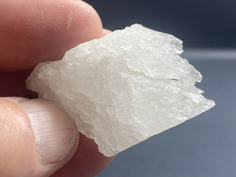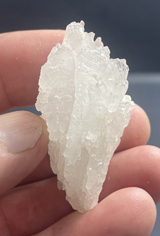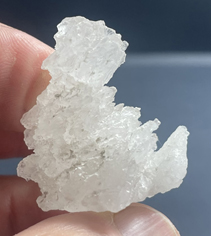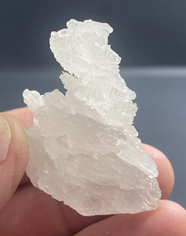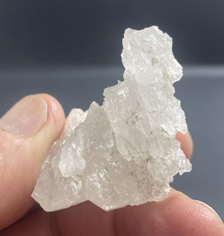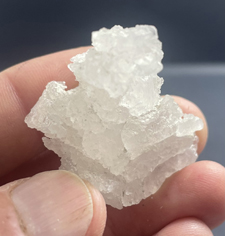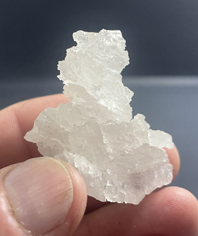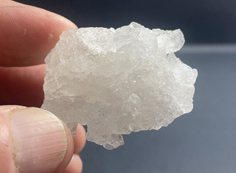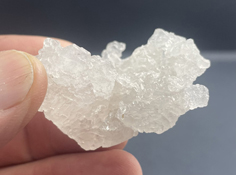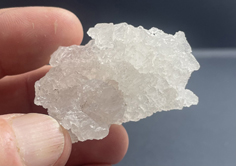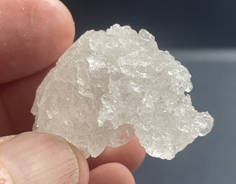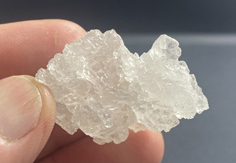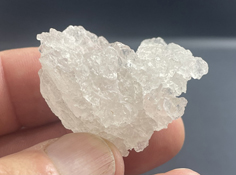Crystal: Isometric
Hardness: 6.5 - 7
Sp.G.: 2.26
Cleavage: None Observed
Fracture: Conchoidal to Uneven
Colour: Colourless, White, Grey,
Pink, Blue or Violet
Lustre: Vitreous to Greasy
| Pollucite is a zeolite mineral with the formula (Cs,Na)2Al2Si4O12·2H2O with iron, calcium, rubidium and potassium as common substituting elements. Pollucite is the only mineral which has Cs as an essential constituent. It forms a solid solution series, as the cesium (Cs) analogue, with analcime, the sodium analogue. Gem grade pollucite is extremely rare. It is important as a significant ore of caesium and sometimes rubidium. It forms a solid solution series with analcime. It crystallizes in the isometric - hexoctahedral crystal system as colorless, white, gray, or rarely pink and blue masses. Well formed crystals are rare. It has a Mohs hardness of 6.5 and a specific gravity of 2.9. It has a brittle fracture and no cleavage. It was first described by August Breithaupt in 1846 for occurrences on the island of Elba, Italy. It is named for Pollux, the twin of Castor on the grounds that it is often found associated with petalite (previously known as castorite). The high caesium content was missed by the first analysis by Karl Friedrich Plattner in 1848, but after the discovery of caesium in 1860 a second analysis in 1864 was able to show the high caesium content of pollucite. Its typical occurrence is in lithium-rich granite pegmatites in association with quartz, spodumene, petalite, amblygonite, lepidolite, elbaite, cassiterite, columbite, apatite, eucryptite, muscovite, albite and microcline. About 82% of the world's known reserves of pollucite occur near Bernic Lake in Manitoba, Canada, where they are mined for their caesium content for use in caesium formate oil drilling assistance. This ore is about 20% by weight caesium. |
Paprok, Kamdesh District,
Nuristan,
AFGHANISTAN
A recent find in Dara-e-Pech Pegmatite Field, Dara-e-Pech District, Kunar, AFGHANISTAN
is thought to be a pseudomorph after Morganite
Dara-e-Pech Pegmatite Field,
Dara-e-Pech District, Kunar,
AFGHANISTAN
Thought to be a pseudomorph after Morganite
|
for displaying and protecting your favourite minerals, gems, fossils, meteorites or other collectibles. We also make mineral display stands and acrylic blocks. FOLLOWING LINK BELOW: And DISPLAY PRODUCTS |
This website was designed by Gerald Reginald Pauley
All Rights Reserved.
